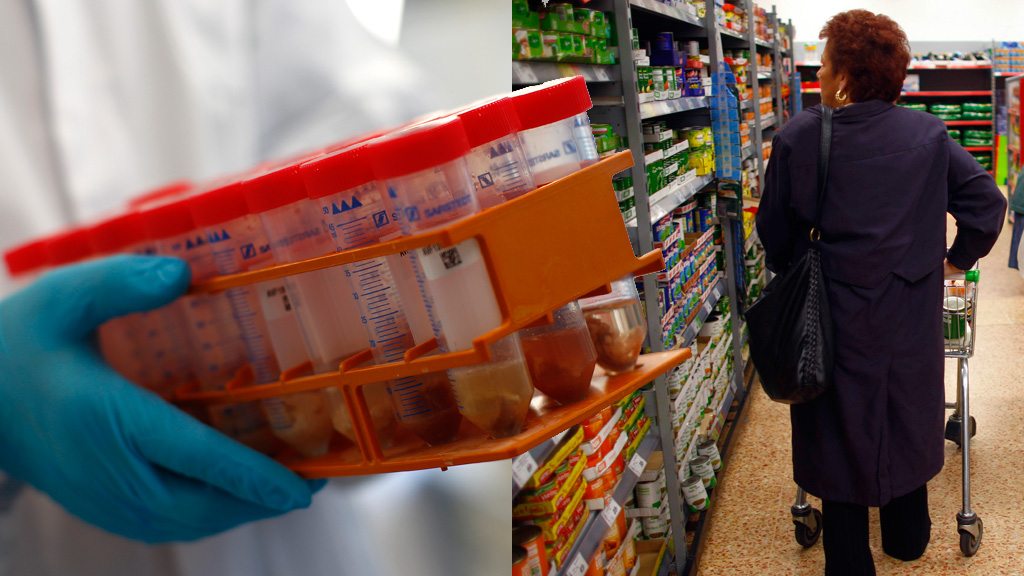Asda defends response after horse drug found in corned beef
Asda says it informed customers “immediately and in the most high profile way possible” after the horse drug bute was found in its value range of corned beef.

The supermarket chain withdrew the product from its shelves on March 8, after receiving a positive test for horsemeat at above a level of 1 per cent.
On Wednesday, the chain said, following further tests on the corned beef range, it had discovered traces of phenylbutazone, an anti-inflammatory used on horses, at a “very low level”.
The supermarket then officially recalled the product, asking customers to return any tins of corned beef to Asda supermarkets, something it had not done following the horsemeat discovery.
The Food Standards Agency (FSA) said no other Asda products are thought to be affected and that, though animals treated with bute should not enter the food chain, the risk of damage to the health of anyone who had eaten such meat is “very low”.
This exposes the weaknesses in the government’s handling of the horse meat scandal. Mary Creagh, shadow environment secretary
A range of UK and global companies have been hit by the horsemeat scandal, including Tesco, Birds Eye, Findus, Taco Bell and Ikea.
The government's outgoing chief scientific adviser warns that safety rules have reached "mad levels", as Science Reporter Asha Tanna writes.
Professor John Beddington has accused policy makers of adopting over-zealous regulations and failing to recognise the difference between risk and hazard.
Speaking to the media after five years in his post, Sir John warned against adopting the same approach in relation to food quality, in the wake of the horsemeat scandal.
He said: "We can think about DNA testing of food," he said. "You can conceive of large amounts of food being banned. It's pretty hard to avoid getting human DNA on your hand-reared pork pie, for example.
"The key thing here is thinking about regulation in a quantitative way and not simply presence and absence. There's a real danger that what's happening in the European community in particular is the over-use of the precautionary principle and a failure to understand the difference between risk and hazard."
Coffee was a cancer trigger, but only at certain dose levels, he pointed out. "If you just say this is a hazard, it is a carcinogen, or it is an endocrine disrupter, or whatever, and you just classify and regulate chemicals on that basis, and ignore the level of exposure, you're hamming it," said Sir John.
"The regulations are essentially saying 'stop it'. I think it's an over and arguably illegitimate use of the precautionary principle."
‘Deeply worrying’
Shadow environment secretary Mary Creagh said it was “worrying” that the product had only been recalled now.
The Labour MP said: “It is deeply worrying that bute, a drug banned from the human food chain, has been discovered in one brand of corned beef.
When we found bute, which was yesterday, we let everyone know immediately in the most high profile way possible. Asda spokesman
“This product was withdrawn from sale on March 8 yet has only been formally recalled now, after testing positive for bute, meaning people could have unwittingly been eating meat containing this drug for the last month.
“This exposes the weaknesses in the government’s handling of the horse meat scandal where products were withdrawn but in some cases not tested either for horse meat or bute. The interests of the consumer should have been put first.”
‘The process’
A spokesman for Asda said: “Regular customers tend to shop for the same products every week. There was very clear signage in the stores around this product. It’s not like we’ve just taken this off the shelves and hoped no one would notice.
“We were testing for horse meat, and when we found it we then looked for bute. This is the process.
“When we found bute, which was yesterday, we let everyone know immediately in the most high profile way possible.”
The corned beef is the only meat product in which bute has been found, according to the Food Standards Agency. FSA director of operations Andrew Rhodes said anyone who has a 340g tin of the corned beef should not eat it, and should return it to Asda (see video, above).
Since the horsemeat scandal began in January 2012, the FSA says it has carried out 6,000 tests. FSA Director of Operations Andrew Rhodes promised on Wednesday “we will carry on testing until there is nothing left to find.”